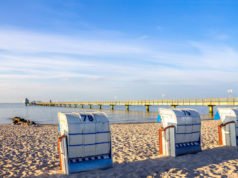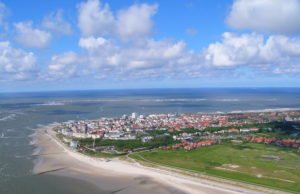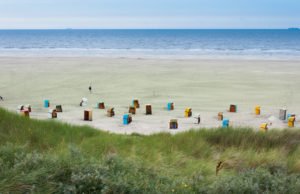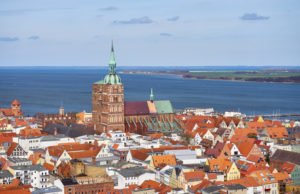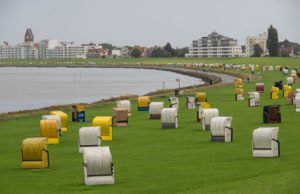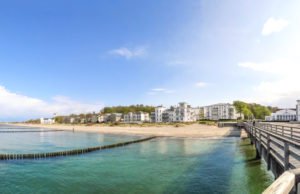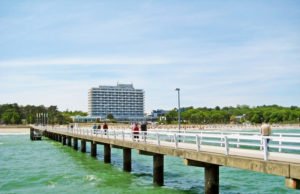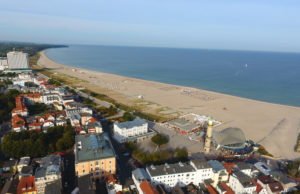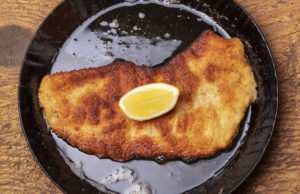
If you are planning a trip to Germany, Cuxhaven is not likely to make the top of your must-visit list. Sure, it pales in comparison to Hamburg’s vastness and grandeur or Bremen’s rich history and culture, but for a North Sea resort, it hardly gets better than Cuxhaven. Once you are there, you will take an instant liking to the unpretentious fishermen’s city, the lush dunes, the huge tides, and the local culture and food.
Location: A little pearl at the mouth of mighty Elbe
Cuxhaven (pro tip: Impress the locals by getting their town’s name right – “cooks-haff’n”) is the northernmost point in the province of Lower Saxony and stands right where the river Elbe meets the North Sea. Their union produces the signature brackish waters with a spectacular variety of colours. Depending on the tides and winds, you can see the water go from murky brown to deep turquoise within a short period of time.
North German weather is notoriously fickle, and the sea readily reflects that, putting on an impressive show of colours and extreme tides. When the water recedes, it exposes several kilometres of seabed which make for memorable hikes and sea treasure hunts. However, stay vigilant and mind the automated warnings: high tide advances rapidly, and you don’t want to find yourself marooned!
The city of Cuxhaven spreads over about 14 square kilometres and has a stable population of a little over 48,000 residents. If you speak German, regardless of your proficiency levels, get ready to feast your ears on the local Niederdeutsch (“lower German”) and its delightful idiosyncrasies.
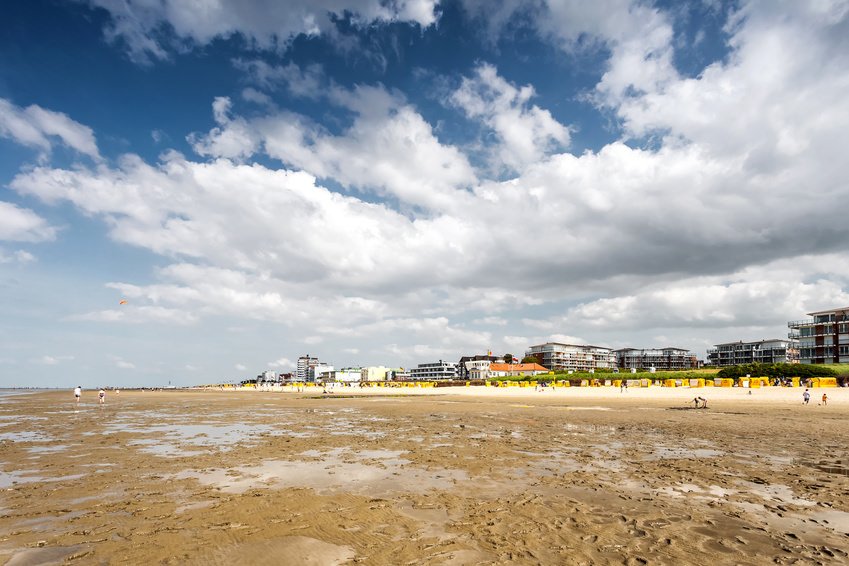
What to see in Cuxhaven
Once you arrive in town, your first impulse will be to head out to the beach area, the Cuxhaven Duhnen. They extend over a couple of kilometres and are bound by an elevated promenade in case you don’t want to get sand in your shoes just yet.
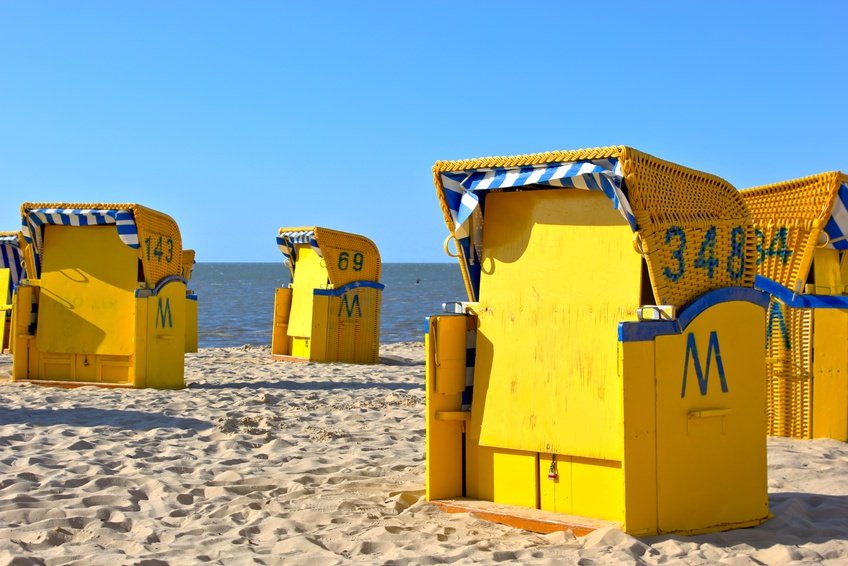
The first landmark you will surely spot at the beach is the Kugelbake – an old lighthouse which has become synonymous with Cuxhaven and appears on its official coat of arms. Set enough time for a good long photo session here.
When at the Duhnen, you will do well to rent a beach basket – a cosy enclosure for two where you can sit and dig your toes in the cool sand, safe from the obligatory wind. Because you are in Germany, each beach basket comes with a practical foldout table for your beer or other beverage of choice.
Remember that promenade we mentioned? It has a name – the Alte Liebe (“Old Love”) – and qualifies as one of Cuxhaven’s prime photography spots. You get a beautiful panoramic view of the bay with massive cruise and cargo ships sailing in and out of town. It’s a tourist magnet at any time of the day or night, and we can’t argue with its charm.

When the tide is low and the weather is permissive, you can treat yourself to a classic mudflat hike and walk the 10-odd kilometres to the island of Neuwerk. A horse carriage provides a tempting alternative and an opportunity to rest your feet. The small piece of land spans just 3 square kilometres, so you can circumnavigate it on foot in one hour. The surrounding salt marshes give a home to many local bird species and are a treasure trove for birdwatching connoisseurs.
If getting around the bay on foot is not your cup of tea, a trip on the Elb-Link ferry may be just what you are looking for. The trip along the Cuxhaven coastline takes between 80 and 120 minutes, depending on the weather conditions and the currents, and offers stunning views of both the city skyline and the busy sea route in front of it.
If you are in the mood for some indoors activity in Cuxhaven, the Windstarke 10 museum is a good place to get a taste of the history and technology behind the local fishing and seafaring business. German knowledge will help you make the most of the experience, however, since the museum is not ideally geared towards foreign tourists.
For a taste of Cuxhaven’s past as an exclave of the former Duchy of Saxony, you can head over to Castle Ritzebuettel, a well-maintained aristocratic abode from the late 13th century. It is a great example of typical Northern German noble houses from that period, and it often opens its doors for state and private functions.
For other sightseeing highlights like water towers, lighthouses, or the radio relay tower, just get out of the hotel room and get walking. Charming and rustic views will sneak up on you at regular intervals as you explore Cuxhaven, with or without a set plan.
Best time to visit Cuxhaven
Cuxhaven is famous for the steady and sometimes daunting winds which blow across its shores, to and from the North Sea. While these conditions are far from enjoyable in the cold months of the year, they make for very enjoyable days and nights in the summer season. The wind provides a welcome counterpoint to the summer heat, making for a very welcoming holiday feel.
The North Sea’s water temperature never gets up to truly comfortable levels; however, in summer the cool 17 to 19 degrees centigrade are just the thing to freshen up after an extended sunbathing session or a relaxing nap in your beach basket.
Cuxhaven on a plate: Local food and delicacies
Given its location, Cuxhaven’s affinity for seafood should not surprise anyone. Although Germany is most famous for its sausage and beer, the local fish dishes will certainly pique your culinary interest.
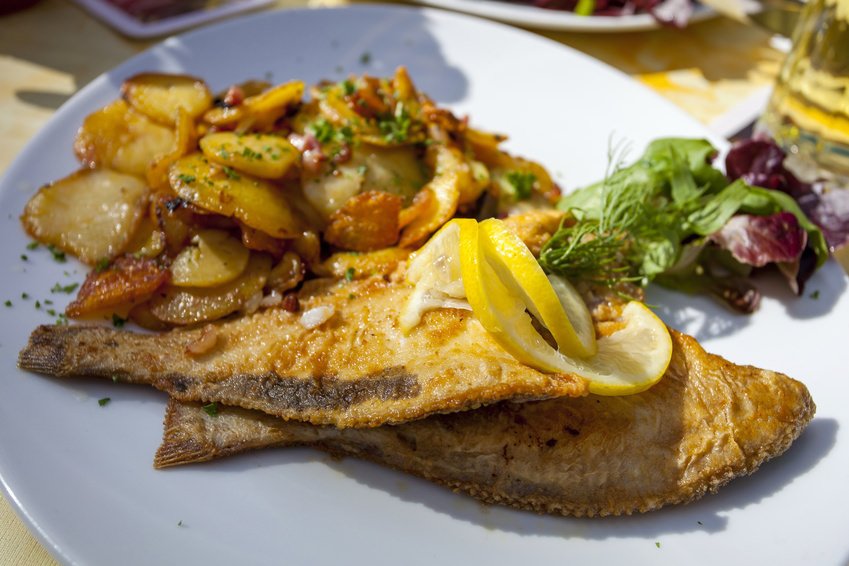
For starters, go with a steaming bowl of crab soup which gives the New England clam chowder a run for its money in the seafood soup category. Chase that down with the intense flavour of pickled herring (“Matjes”) with a thick yogurt-and-chive sauce. No lemon to temper that fishy goodness down!
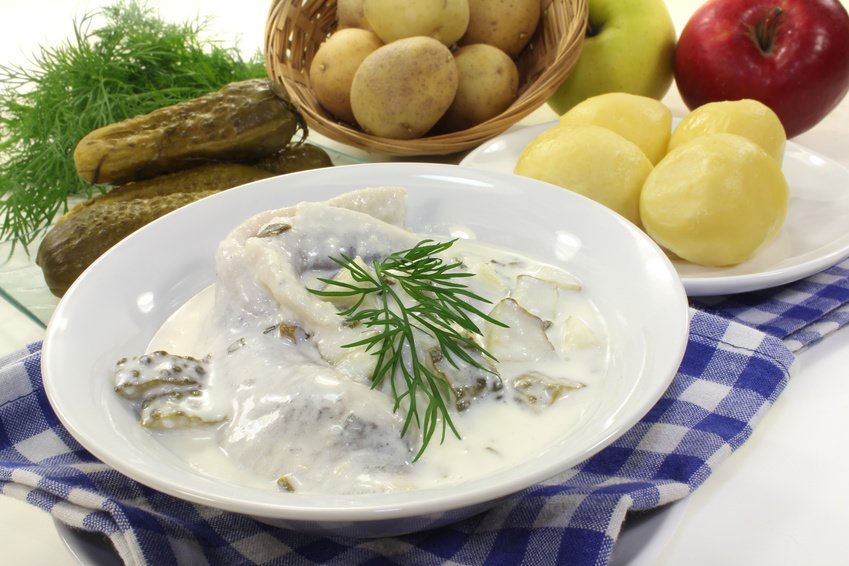
For your main course, treat yourself with a grilled fish (“Backfisch”) which can be one of several freshly caught local varieties. The simple preparation makes sure you can taste the quality and freshness of the product itself. The grilled fish typically comes with a side of oven-roasted or boiled potatoes and a small salad.
For dessert, you can treat yourself to a bite of marzipan in whatever shape or form your establishment of choice provides – praline, cake, cream, or cream. Marzipan was invented in Lübeck close by, and it enjoys lasting popularity in the region and beyond.

Where to stay in Cuxhaven
The local tourism industry in Cuxhaven has been growing since the 19th century, and the hospitality business has something to offer to visitors of all means. Budget hotels will host you for slightly under 60 EUR a night, while options with higher comfort in more attractive locations start at around 80 EUR.
For hotels on the shore, prices start at around 120 EUR and can go to more than double that depending on when you wish to stay and how much in advance you book.
Getting around
Germany’s excellent public transit system has certainly not bypassed Cuxhaven. The city is connected to the rest of the country via a centrally located train station, and you can get around town using the local bus network.
If you are feeling sporty and the sun is shining, there is no better way to freely explore Cuxhaven and its surroundings than on a bicycle. Your hotel will likely offer the service, or you can rent a bike at the train station. Either way, the price should not exceed 12 EUR per bike for the whole day, and you will enjoy the ultimate freedom in pursuing your discoverer spirit.
Shopping and nightlife in Cuxhaven
Cuxhaven is not a major shopping location; you can head over to Hamburg for the classic big-brand spree experience. Here instead, you can enjoy slightly outlandish stuff like the Scandinavian-heavy Speicher des Nordens, complete with Nordic candy, toys, and examples of the efficient and inventive designs which are typical of the region.
Similarly, nightlife in Cuxhaven is also scaled back in comparison to larger cities and offers a few bars and night clubs, mostly clustered around the Duhnen area. You can dance or you can enjoy a relaxed drink, all next to the North Sea shore.




